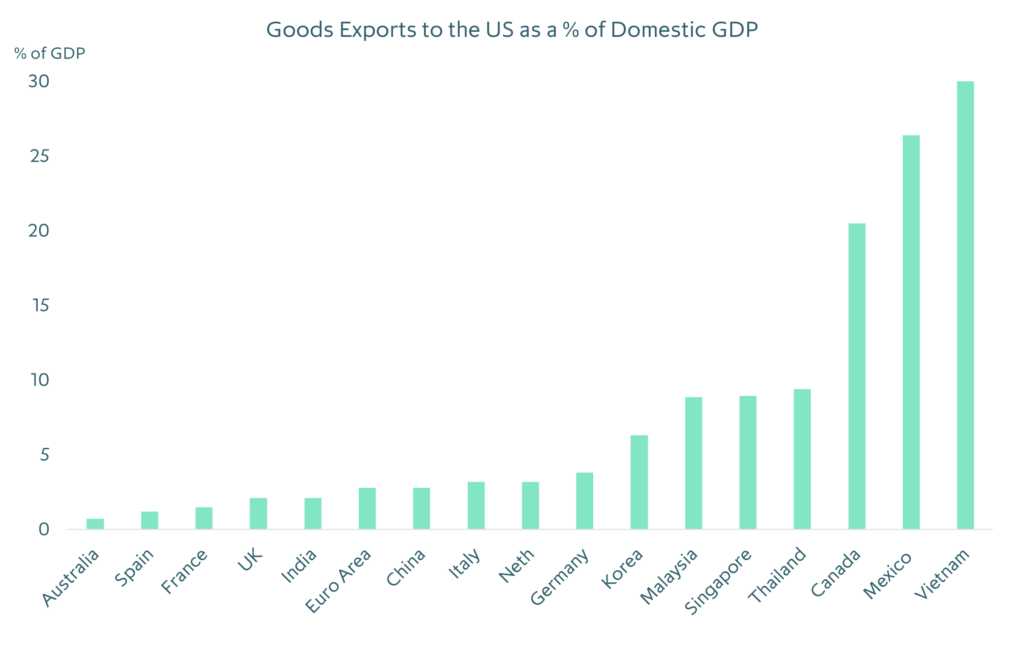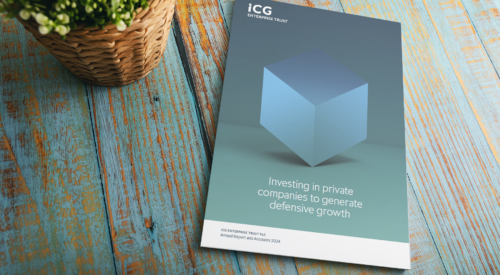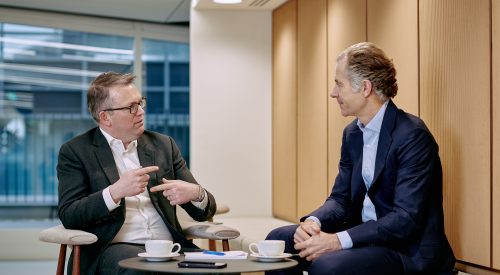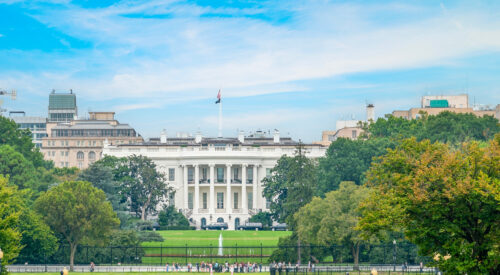Key points
- The base case scenario of ICG Enterprise Trust’s manager, ICG, is that most major developed economies will likely avoid recession in 2025, but policies are in flux and the outlook is especially uncertain.
- Brooks believes the US economy is likely to see the sharpest slowdown among major developed economies in 2025, with growth slowing to between 0%-0.5%. There is potential for a technical recession depending on what happens during and after US President Donald Trump’s 90-day pause on “reciprocal” tariffs, how the US Federal Reserve (Fed) decides to act on interest rates and if the US Treasury is willing to intervene to stabilise markets.
- Most European economies will continue to see positive growth in the 0.5%-2% range in 2025, in ICG’s view. Increased fiscal stimulus and European Central Bank (ECB) policy rate cuts will help to offset tariff disruption.
- Despite the likelihood of the UK seeing a relatively small negative impact from US tariffs, fiscal constraints and sticky inflation give policymakers less leeway to support growth than in Europe. While Nick Brooks thinks that UK growth in 2025 will remain positive, GDP growth in the 0.5%-1% range seems more likely.
- While the ECB has scope to cut rates another 50-100 basis points this year, the Fed and Bank of England (BoE) are constrained by sticky core inflation and – particularly in the US – heightened inflation expectations. Until inflation expectations are clearly under control, an extended rate cutting cycle seems unlikely. The BoE is facing a similar situation, says Brooks, but most lead indicators point to more rapid core inflation declines in the coming months, which should allow the BoE to push through more aggressive rate cuts in the coming months.
- The environment in which companies operate will likely become more difficult across all markets, but performance dispersion is likely to be high. While some businesses in manufacturing/industrial sub-sectors will be hit by the higher US tariffs (e.g. autos and auto related companies), ICG (and most of the private markets industry) tend to have limited exposure to these areas. The bulk of alternative asset manager investments are in less cyclical services related businesses that are well-insulated from the direct effects of the trade war.
It is too early to fully assess the secondary effects of a potential slowdown in the US economy, concludes Brooks. There is a prospect for sustained lower asset prices and higher policy uncertainty. ICG will be monitoring sentiment and purchasing manager indicators and company fundamentals in the coming months to gauge the potential magnitude of these secondary effects and their impact on the broader global economic outlook and business operating environment.
Country exposure to US import tariffs varies widely




















 Back
Back